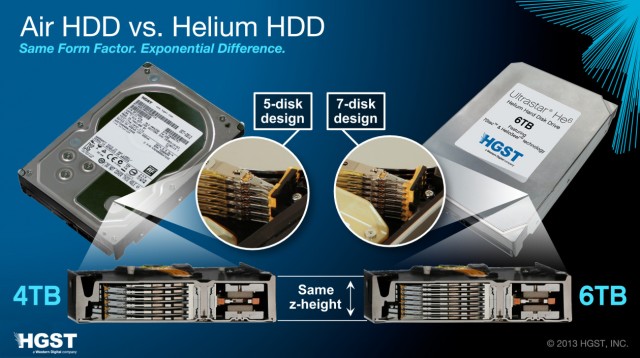|
If anyone out there is like us, they'd like to have a couple of alternatives to whichever Cable company or high speed Internet provider has the monopoly in their area (assuming that any high speed ISP is even willing to build infrastructure in your area!)
If you can't wait for Google Fiber to reach your area, there may be another option on the horizon. Startup company Starry wants to provide Gigabit wireless Internet connections with no data caps or restrictive contracts. The current high-speed providers in the US have hobbled us in comparison to Internet speeds of other countries, and worse, charge a higher rate for their sub-par services. Of even greater interest is that existing ISPs tend to suddenly have the capability to provide faster and/or more reasonably priced services almost as soon as an alternative Internet provider is available in a region. As consumers, we should be excited about any new Internet provider willing to shake up the status quo. Though I haven't heard any whispers of a reliable alternative coming to this area soon, I'll be sure to report as soon as an option is available.
0 Comments
The Surface Pro 4 and Surface Book was released a few weeks ago and the initial reviews are positive. If you are looking for a high-end Windows tablet that can also function as a laptop, then these devices definitely deserve a look. Though they come at a high price point, that price buys you some sturdy engineering and some good hardware.
That's not to say that there aren't issues. Here is a list of problems (and potential solutions) mentioned by early adopters and review sites. It is important to note that these are new devices (and in the case of the Surface Book, first generation devices) so some issues out of the box are to be expected. If you have any experience with a Surface Pro or Surface Book, please be sure to share your experience in our comments section. One way a community hoping to grow and attract high-tech businesses, the kind that will likely be driving the economy over the next few decades, is to take its Internet service into its own hands and provide it as a utility to the community. By investing in a high speed infrastructure, municipalities can provide significantly faster Internet service at often significantly reduced rates than the Internet Service Providers in the area.
Investment in a public Internet infrastructure benefits both the residents of the community and provides a strong lure to businesses. Cities where municipal Internet is already provided or proposed (Lafayette, Cleveland, Chattanooga, etc.) are generating lots of buzz and have been able to provider their residents with speeds in excess of 1Gbps (about 10x faster than the fastest available Cox speeds) at significantly lower prices (prices and speeds more akin to what the rest of the world pays for service that is significantly better than ours. Personally, I'd like to see the Internet service providers in the US provide speeds more than the average 34Mbps we currently enjoy, something more on par with tech savvy countries like Romania (65Mbps average). And that US average isn't adjusted for all of the areas of the country that don't have high speed access at all; it's just the aggregate. Using Chattanooga as an example, they are currently offering home Internet service of 1Gbps for &70/month.  Following their recent acquisition of Nest, Google has purchased the company that makes Dropcam, a streaming webcam/security camera and associated Cloud Service. The Interface is slick and simple, the devices and services are reasonably priced, and there's a lot of peace-of-mind that such an offering can provider. However, as Extremetech points out, "Just imagine what Google could do with a real-time, high-res video feed of your home. Where the Nest thermostat might give Google some behavioral data — how warm/cold you like the house, your comings and goings — it pales in comparison to Dropcam. With Dropcam, Google would know exactly what you’re up to at any given time. If you’re preparing dinner, Google Now might automatically prompt you with “tips on how to make the perfect souffle.” If you’ve just brought a newborn baby back from the hospital, you might suddenly find lots of Google ads for diapers and strollers. If it hears you shouting at your game console, it might tailor your search results to show some different, less-antagonizing games." We tend to fall more into the "Google is helpful" rather than the "Google is evil" category, but I have concerns about systems such as this and the current generation of gaming consoles, which is constantly streaming data off to some server somewhere else, with the only thing protecting me from how that data is used being the privacy policy that I didn't read and likely wouldn't understand in its nuanced legalese. Moreover, even if Google can be trusted, recent events have shown that once data is online, it can be hacked, and I'm not certain how comfortable I'd be with 7-30 days of my comings and goings available online for a would-be thief to study prior to breaking into my house. Then again, this line of work has gone a long way to making me paranoid. So perhaps I'm overreacting. That Nest smoke detector does sound nice... Though long self-branded as the operating system that "Just Works", OSX and iOS may be losing ground to Android (and Linux in General). Follow the link to read more about Crittercism's Mobile Experience Benchmark Report, which shows that Android KitKat is the most stable mobile OS by a wide margin. Or if you prefer to skip the statistics, just read Techrepublic's Summary of the report.
Due to its security, growing ease of use, and particularly price (FREE!), Linus has seen rapid growth over the last year. But is the world ready for a Linux Phone? Ubuntu Phone is on the way, and it may be more than ready.
 Has Google done what no other company has been able to do? Have they taken the relatively obscure (but free and highly useful) Linux operating and popularized it? Jack Wallen of Techrepublic thinks so. By developing both ChromeOS and Android from the Linux kernel, and then making sure to properly support it, Google may be overcoming the public's fear of Linux. Could they also be responsible in some part for Apple giving away its operating system for free as well? Or Microsoft's recent decision (no doubt only because their hand is being forced) to significantly reduce the price of Windows 8? Facebook's "DeepFace" project is now nearly as good at matching faces as people are... I just can't wait for the Minority Report style advertising to begin...
Western Digital has announced the commercial availability of the world’s first hermetically sealed, helium-filled hard drive, the Ultrastar He6 — a 6-terabyte hard drive that, along with being the first helium-filled drive, just happens to be the highest-capacity conventional storage disk in the world.
 In science's ongoing quest to have humanity enslaved or destroyed by sentient machines, a team from the Harvard School of Engineering and Applied Sciences (SEAS) is working to build a transistor that behaves like a neuron. Such technology could greatly increase the speed at which computations can occur, as well as improve a machines ability to learn and remember. Hopefully it won't increase the incidence of Early Onset Artificial Alzheimer's. |
Bret FunkCompTIA A+ Certified Technician Archives
July 2016
Categories
All
|


 RSS Feed
RSS Feed